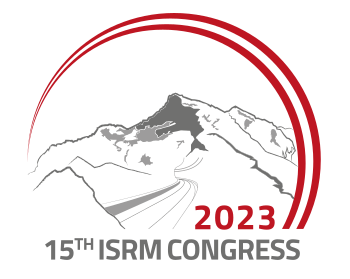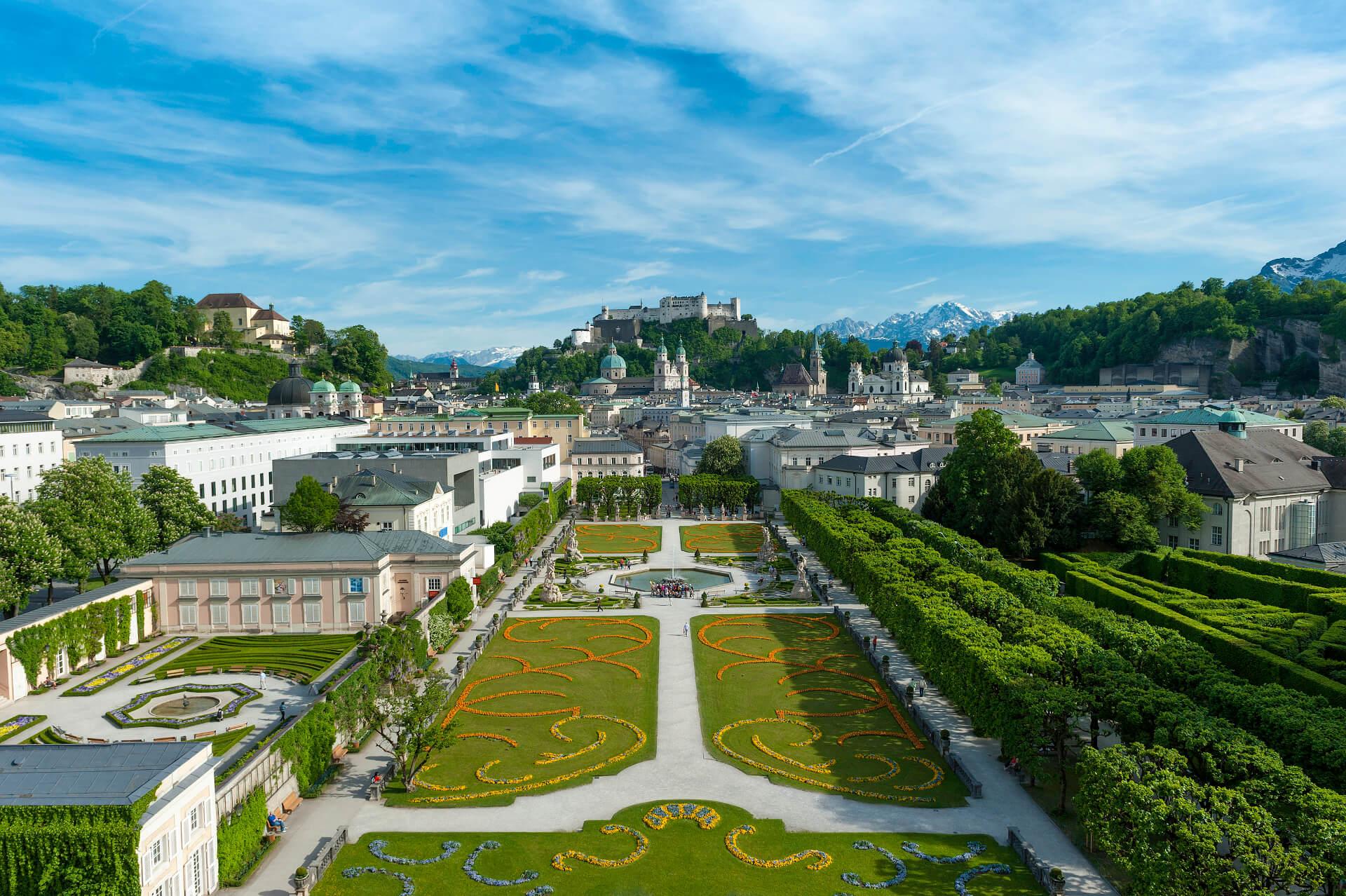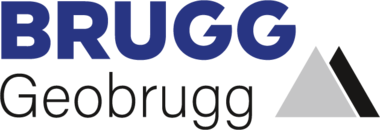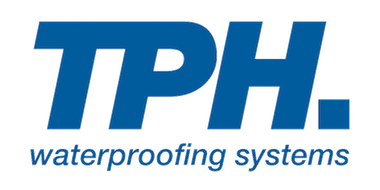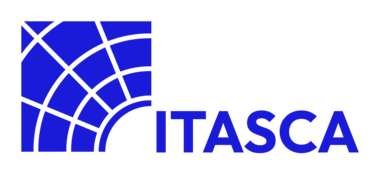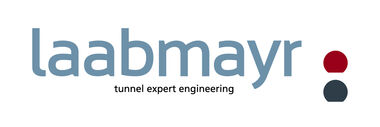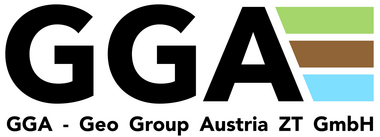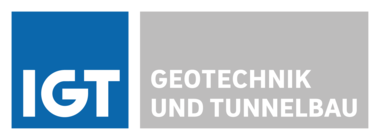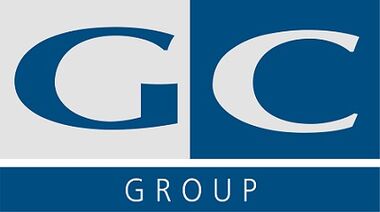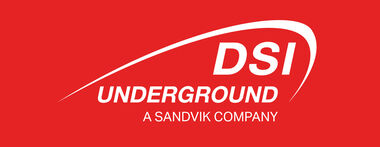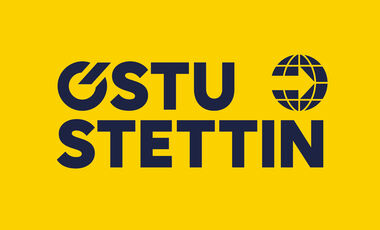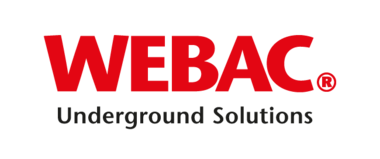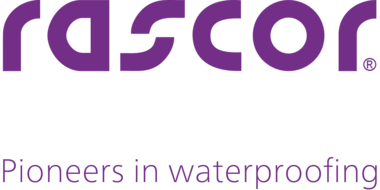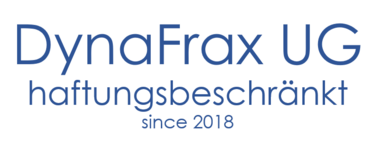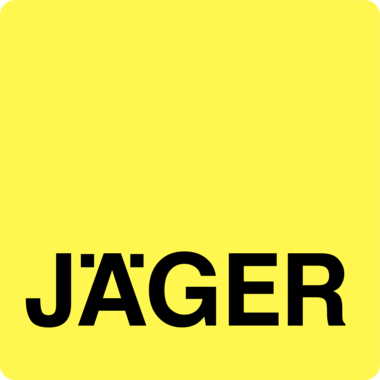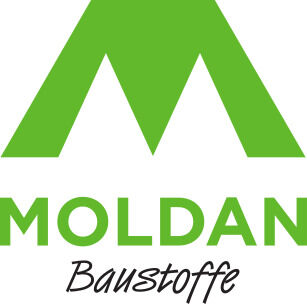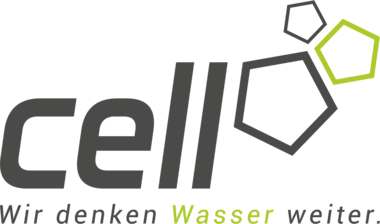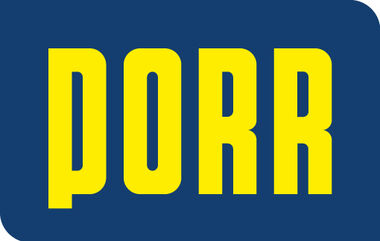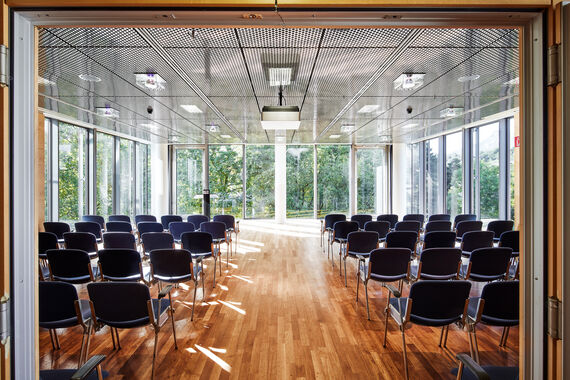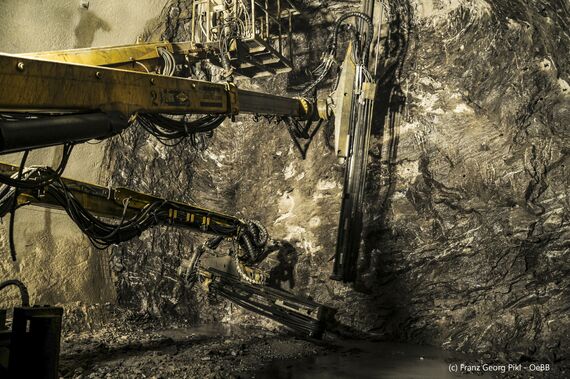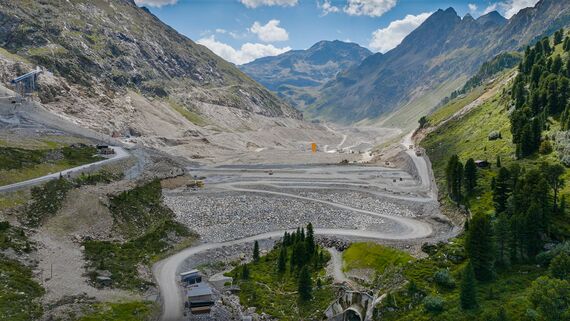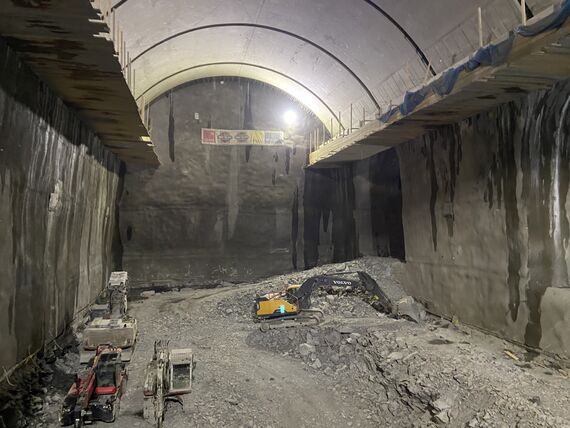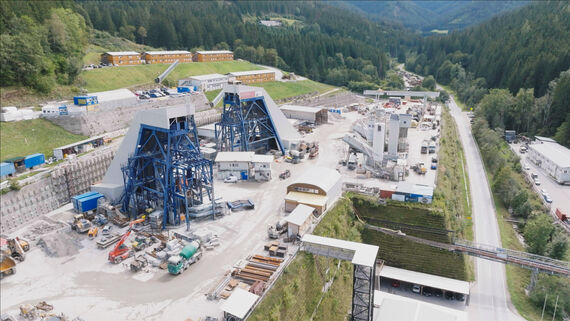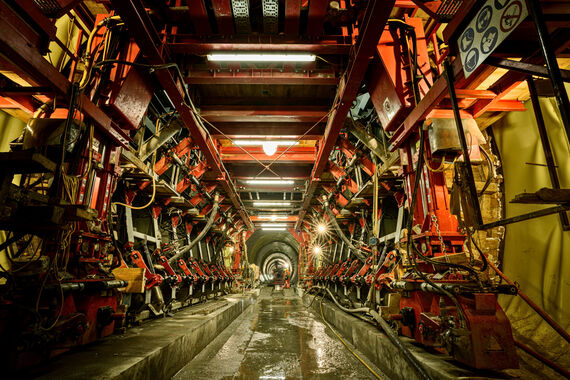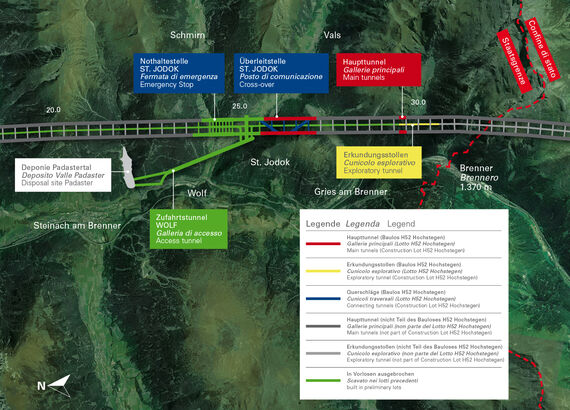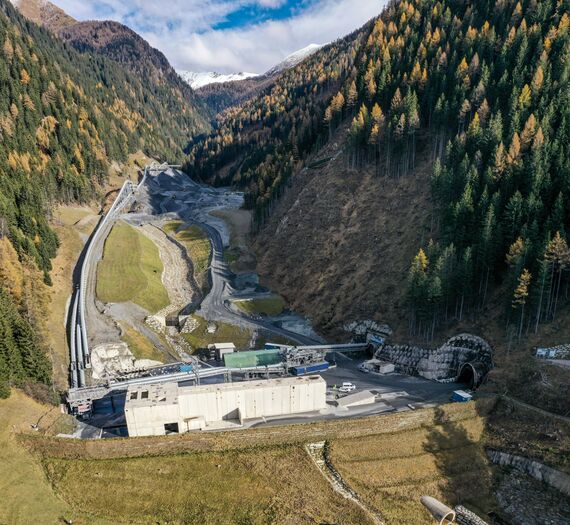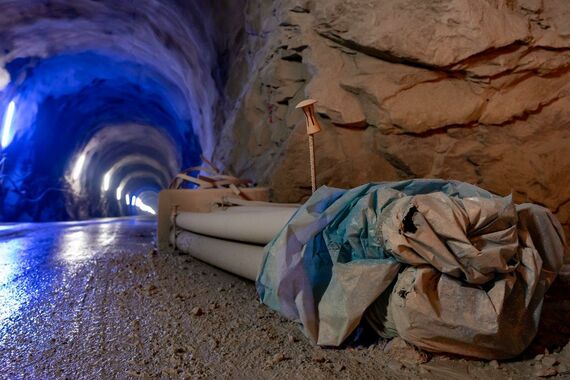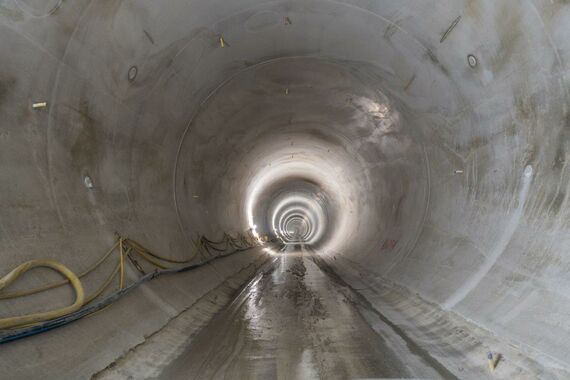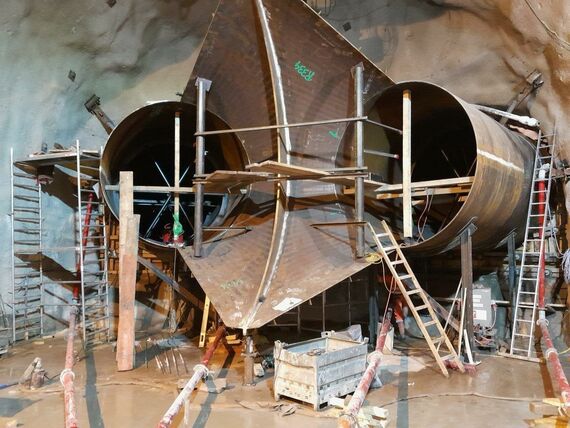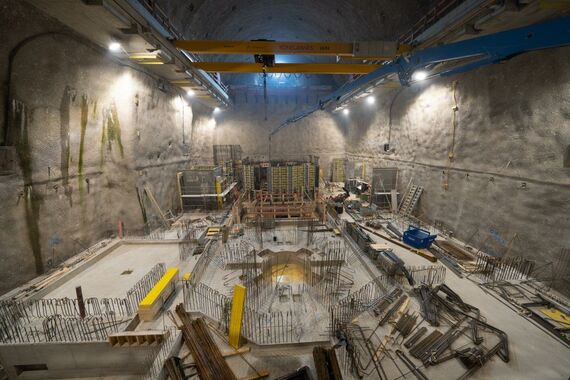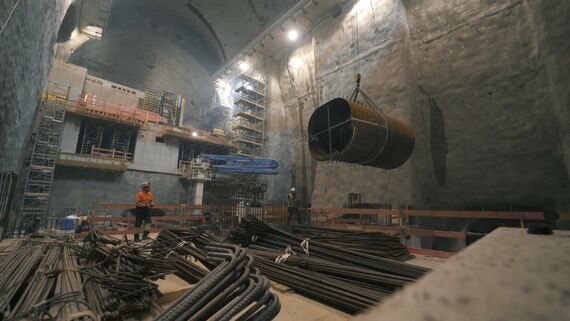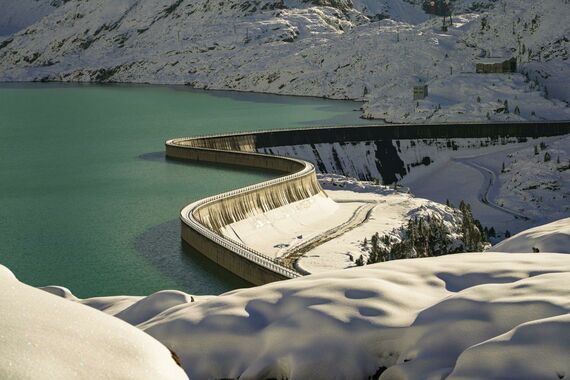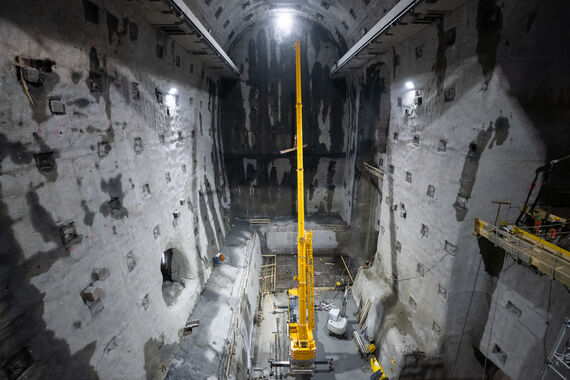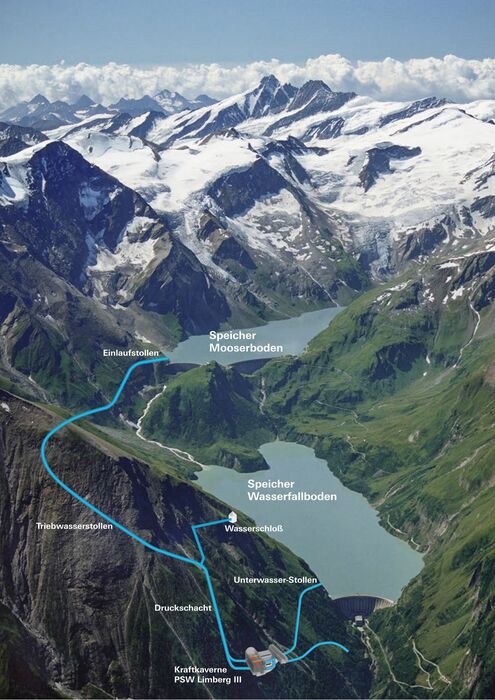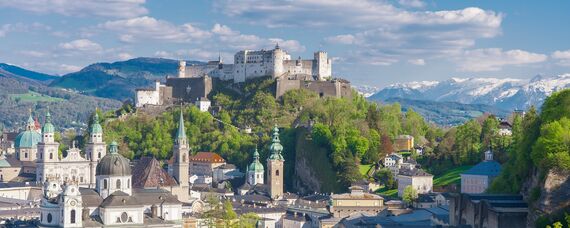*** ORAL PRESENTATIONS ***
(The contributions listed below are NOT in the chronological order of presentation.)
Influence of microscopic composition on the strength of rock-like materials under various loading rates
Meng-Chia WENG (1), Hoang-Khanh LE (1), Hung-Hui LI (2), Chih-Shan LEE (1), Chia-Chi CHIU (3)
1: National Yang Ming Chiao Tung University
2: National Defense University
3: National Taipei University of Technology
The influence of microwave treatment on the Cerchar abrasivity of igneous rocks
Sair KAHRAMAN (1), Egemen SAYGIN (2), Mustafa FENER (3)
1: Hacettepe University, Turkey
2: RPM Global-Turkey
3: Ankara University
Effect of normal stress on dynamic friction weakening of granitic rock joints under cyclic shear
Kai ZHANG (1), Ling ZHU (2), Li CHENG (3), Qingchao LYU (4), Yaoru LIU (1)
1: Tsinghua University, People's Republic of China
2: Hydropower Engineering Technology Research Center, Academy of Science and Technology, China Three Gorges Corporation
3: China Renewable Energy Engineering Institute
4: Powerchina Northwest Engineering Corporation Limited
Flow simulation in digital rough fractures by considering anisotropic roughness and geometrical combinations
Xunhui XU (1), Weiren LIN (1), Han BAO (2), Peijie YIN (2)
1: Kyoto University
2: Chang'an University
Assessment of the creep behavior of siltstone for the Snowy 2.0 hydropower station using multistage uniaxial and triaxial creep tests
Samer ABOU KHEIR (1), Andrea BROGIATO (1), Patrick LIGNIER (2), Angelo LAMBRUGHI (3), Gabriele DE CARLI (4), Mark DIEDERICHS (5), Ivan CHING (6), Damiano FRONTINI (7)
1: Tractebel Engineering S.A, Gennevilliers, France
2: Tractebel Engineering S.A, Lyon, France
3: Webuild S.p.A, Milan, Italy
4: Webuild S.p.A, Rome, Italy
5: Queen’s University, Kingston, Canada
6: Snowy Hydro Limited, Cooma, Australia
7: Future Generation Joint Venture, Cooma, Australia
Intact Strength Determination of Rock Containing Mesodefects using the Leeb Hardness Test
Andrew Garnet CORKUM (1), Derek KINAKIN (3), Diego MAS IVARS (2)
1: Dalhousie University, Canada
2: BGC Engineering Inc, Canada
3: SKB and KTH, Sweden
Physical modelling of bimrocks in large scale direct shear apparatus
Milorad JOVANOVSKI, Jovan Br. PAPIC, Igor PESHEVSKI
all: University Ss. Cyril and Methodius, Faculty of Civil Engineering, Republic of North Macedonia
Application of Digital Image Correlation for Analysis of Anisotropic Materials Under Tension
Timothy Robert Michael PACKULAK, Émélie GAGNON, Samuel Keith WOODLAND, Jennifer Jane DAY
all: Department of Geological Sciences and Geological Engineering, Queen's University, Canada
A modification of nonlinear Forchheimer’s coefficient for fracture flow during shear
Min GAO, Xu ZHU, Chengguo ZHANG, Joung OH
all: University of New South Wales, Australia
Temperature-dependent strength of ice-filled discontinuities in frozen and thawing rock masses
Greg GAMBINO (1), John P. HARRISON (2)
1: University of Toronto, Canada (now at WSP Canada Inc.)
2: University of Toronto, Canada
Influence of the specimen slenderness on the direct tensile strength of rocks
Mauro MUÑIZ-MENÉNDEZ (1), Ignacio PÉREZ-REY (2)
1: CEDEX, Madrid, Spain
2: University of Vigo, Vigo, Spain
Spatial modeling of rock strength heterogeneity and anisotropy using Universal Discontinuity index (UDi)
Amin HEKMATNEJAD (1), Eduardo ROJAS (2), Alvaro PEÑA (3), Benoit CRESPIN (4)
1: Pontificia Universidad Católica de Valparaiso, Chile
2: CODELCO, Chile
3: Pontificia Universidad Católica de Valparaiso, Chile
4: University of Limoges, France
Elucidation of microscopic stress state within surface asperities of a rock joint
Bunyuu HASEGAWA (2), Sota HIGASHI (1), Atsushi SAINOKI (1)
1: Kumamoto University, Japan
2: Tokyo University, Japan
Cracking evolution for deep hard coal using X-ray in-situ micro-CT technology and fractal theory
Liang ZHANG (1,2), Xiaopeng LI (1), Qingxin QI (1), Haitao LI (1)
1: Deep Mining and Rockburst Research Institute, CCTEG Chinese Institute of Coal Science, Beijing, China
2: State Key Laboratory Cultivation Base for Gas Geology and Gas Control, Henan Polytechnic University, JiaoZuo, Henan, China
A Study on Dynamic Shear Properties of Bimrock
Nazlı TUNAR ÖZCAN (1), Elif AVŞAR (2)
1: Hacettepe University
2: Konya Technical University
Investigation on the influence of non-stationary trend on the shear strength of rock joints
Changshuo WANG, Shigui DU, Weiming LIU, Rui YONG, Zhanyou LUO
all: Institute of Rock Mechanics, Ningbo University, Ningbo, Zhejiang, China
Failure response of rocks under different cyclic loading histories
Abbas TAHERI (1), Roohollah SHIRANI FARADONBEH (2)
1: Queen's University, Canada
2: Curtin University, Australia
A new simple shear test of rock prism specimen by torsional shearing
Yota TOGASHI (1), Riho HIRASAWA (2), Masahiko OSADA (1)
1: Saitama University, Japan
2: Saitama University (presently Oriental Consultants), Japan
A theoretical framework for calibrating the transversely isotropic elastic rock parameters from UCS tests on cylindrical specimens using circumferential strain measurements
Manuel WINKLER, Thomas FRÜHWIRT, Thomas MARCHER
all: Institute of Rock Mechanics and Tunnelling, TU Graz, Austria
Swelling pressures of clay rocks from laboratory tests: experience and improvements
Walter STEINER (1), Fritz MADSEN (2), Jean-François MATHIER (3)
1: B+S AG, Bern, Switzerland
2: Consultant, ret. ETHZ. Adliswil, Switzerland
3: Consultant, ret. EPFL, Avenches, Switzerland
The Interplay between Geometry and THMC Processes
Mengsu HU (1), Laura PYRAK-NOLTE (2)
1: Lawrence Berkeley National Laboratory, USA
2: Purdue University, USA
Determining the transversely isotropic elastic constants from strain data by means of different mathematical approaches
Manuel A GONZÁLEZ-FERNÁNDEZ (1), Ignacio PÉREZ-REY (1), Leandro R ALEJANO (1), José MURALHA (2), Seungki HONG (3), Ki-Bok MIN (3)
1: Department of Natural Resources & Environmental Engineering, University of Vigo, Spain
2: Concrete Dams Department, National Laboratory for Civil Engineering (LNEC), Lisbon, Portugal,
3: Department of Energy Systems Engineering and Research Institute of Energy and Resources, Seoul National University, Seoul, Republic of Korea
Characterization of Mobilized Cohesion, Friction and Dilation Angles of Brittle Rock During Plastic Deformation
Sarbartha SARKAR, Rakesh KUMAR
all: Indian Institute of Technology Kharagpur, India
Hard soil and rock classification – Pressuremeter data versus tests on samples
Peter ALLAN (1), Jean-Pierre BAUD (2), Robert HEINTZ (3)
1: Pace Geotechnics, Morpeth, Northumberland, United Kingdom
2: Eurogéo, France
3: Eurasol, Luxembourg
On the crack initiation location in the Brazilian test: Griffith-based insight
Yousef NAVIDTEHRANI (1), Covadonga BETEGÓN (1), Robert W. ZIMMERMAN (2), Emilio MARTÍNEZ-PAÑEDA (2)
1: University of Oviedo, Gijon, Spain
2: Imperial College London, London, UK
Fundamental study on estimation of permeability at in-situ EDZ from pore air pressure response
Masahiko OSADA, Koji OSAWA, Christina Putri WIDYANINGTYAS, Yota TOGASHI
all: Saitama University, Japan
Micro-fracturing in SCB test: Acoustic emission analysis
Matej PETRUZALEK (1), Ali AMINZADEH (1), Vaclav VAVRYCUK (1,2), Zuzana JECHUMTALOVA (2), Petr KOLAR (2), Josef ROTT (3,4), Tomas LOKAJICEK (1)
1: Institute of Geology of the Czech Academy of Sciences, Czech Republic
2: Institute of Geophysics of the Czech Academy of Science, Czech Republic
3: Faculty of Science, Charles University, Prague, Czech Republic
4: Správa železnic, státní organizace, Czech Republic
Physical Modeling in Rock Mechanics and Rock Engineering
Herbert H. EINSTEIN
Massachusetts Institute of Technology, United States of America
The Tauernmoos pressure tunnel: a multidisciplinary approach to verify and ensure design rock mass conditions during construction
Andreas MAYER (1), Franz REITER (2), Andreas FREUDENTHALER (3), Miroslav MARENCE (4)
1: Büro für Geologie und Hydrogeologie ZT GMBH, Austria
2: ÖBB Infrastruktur AG
3: AFRY Austria GMBH
4: AFRY Austria GMBH
4D imaging of crack evolution and failure mode in 3DP rock-like samples under uniaxial compression by using in-situ micro-ct technology
Yulong SHAO, Jineon KIM, Jae-Joon SONG
all: Seoul National University, Korea, Republic of South Korea
Mechanical properties of 3D printed sandstone analogue with different binder rates
Minoru SATO (1), Takato TAKEMURA (2), Daisuke ASAHINA (3)
1: Central Research Institute of Electric Power Industry, Japan
2: Geomechanics Lab., Department of Earth and Environmental Sciences, Nihon University
3: Geological Survey of Japan, AIST
Effect of cyclic thermal loading on a carbonate rock: implications for thermal energy storage
Katharina Meta NEUMANN, Mandy DUDA, Tobias BACKERS
all: Ruhr-Universität Bochum, Germany
Experimental and numerical study on the creep behavior of a rock mass with filled joints
Maximiliano R. VERGARA (1,2,3), Ana LIBREROS (4), Karl BALTHASAR (3)
1: Skava consulting SA, Providencia, Chile
2: Skava consulting ZT, Salzburg, Austria
3: Institute of Soil Mechanics and Rock Mechanics, Karlsruhe Institute of Technology, Karlsruhe, Germany
4: Ed. Züblin AG, Zentrale Technik - Tunnel Engineering, Stuttgart, Germany
Direct shear tests on large natural and artificially induced rock fractures in a new laboratory equipment
Lars JACOBSSON, Mathias FLANSBJER, Jörgen LARSSON
all: RISE Research Institutes of Sweden AB, Sweden
*** POSTER PRESENTATIONS ***
(The contributions listed below are NOT in the chronological order of poster presentation. NOT all of them will be presented.)
Estimation models for deformability of marlstones based on their physical and mechanical properties and for variable load range
Srđan KOSTIĆ
Jaroslav Cerni Water Institute, Serbia
Optimization of UCS testing of limestone rock
Jørgen Steen STEENFELT
COWI, Denmark
Study on the mechanical characteristics of rock-concrete Brazilian disc based on DEM
Yadong XUE (1), Lushan SHU (1), Kai SHEN (2), Yongfa GUO (3)
1: Department of Geotechnical Engineering College of Civil Engineering, Tongji University, Shanghai, China
2: School of Civil Engineering, Central South University, Changsha, China
3: China Railway Eryuan Kunming Survey, Design and Research Institute Co., Ltd, Kunming, China
The Bologna interpretation of rock bridges: what is real and what has the potential to be real?
Davide ELMO
University of British Columbia, Canada
Development and functional verification of an ultra-deep drilling core geological environment true triaxial apparatus
Xiwei ZHANG, Lei SHI
all: Northeastern University, Shenyang, China
Temperature- and pressure-dependent dynamic and static elastic moduli
Jian YANG (1,2), Li-Yun FU (1,2)
1: Shandong Provincial Key Laboratory of Deep Oil and Gas, China University of Petroleum (East China)
2: School of Geosciences, China University of Petroleum (East China)
A practical approach to determining the basic friction angle of natural and rough discontinuities in carbonate rock slopes
Zhen YE (1), Qian LIU (2), Qiang XU (1), Xiujun DONG (1), Feng PU (1)
1: State Key Laboratory of Geohazard Prevention and Geoenvironment Protection, Chengdu University of Technology, China
2: Graz University of Technology, Austria
Study on the relationship between uniaxial compressive strength and elastic properties of limestone with various sample diameter
Hasan ARMAN, Safwan PARAMBAN
all: United Arab Emirates University, College of Science, Geosciences Department, Al Ain, United Arab Emirates
Behaviour of a pre-defined crack propagating under dynamic tensile loading condition
Rabin Kumar SAMAL, Gangavarapu Teresa DES DE MONA, Sunita MISHRA
all: Department of Mining Engineering, IIT Kharagpur, India
Numerical Analysis of Thermo-Mechanical Characterization of Indian Sandstone under Dynamic Compressive Loading Condition
Abhishek MOHAPATRA, Anjali KUMARI, Sunita MISHRA
all: Department of Mining Engineering, IIT Kharagpur, India
Evaluation of the dilatant behavior of a crystalline rock using full-field optical imaging and ultrasonic monitoring
Deepanshu SHIROLE (1), Gabriel WALTON (2), Ahmadreza HEDAYAT (3), Sankhaneel SINHA (4)
1: Indian Institute of Technology Delhi, India
2: Department of Geology and Geological Engineering, Colorado School of Mines, Golden, USA
3: Department of Civil and Environmental Engineering, Colorado School of Mines, Golden, USA
4: Department of Geology and Geological Engineering, Colorado School of Mines, Golden, USA
Hydromechanical characterization of Château-Landon chalk behavior
Danielle PAJIEP (1,2), Jian-Fu SHAO (2), Nathalie CONIL (1), Mountaka SOULEY (1), Philippe GOMBERT (1)
1: National Institute for Industrial Environment and Risks
2: University of Lille
The dynamic tensile strength and failure characteristics of transversely isotropic shale under impact Brazilian test
Lichun JIA, Qicong XU, Chongjun HUANG, Lei LI, Xiao WEI, Changhong ZHOU
all: Drilling & Production Technology Research Institute, CNPC Chuanqing Drilling Engineering Company Limited, People's Republic of China
Evaluation of different methods for determining rock masses stiffness
Neil BAR (1,2), Wulf SCHUBERT (1)
1: Graz University of Technology, Austria
2: Gecko Geotechnics LLC, Saint Vincent and the Grenadines
Shear strength determination of very rough and partially filled extension fractures in thick-bedded and karstified limestones
Petar HRŽENJAK (1), Ivana DOBRILOVIĆ (1), Dražen NAVRATIL (2), Biljana KOVAČEVIĆ ZELIĆ (1)
1: University of Zagreb, Faculty of Mining, Geology and Petroleum Engineering, Croatia
2: Croatian Geological Survey, Croatia
Estimation of cutting force considering intermediate dynamic rock strength using multiple linear regression
Yudhidya WICAKSANA (1), Suseno KRAMADIBRATA (2), Seokwon JEON (3)
1: Institut Teknologi Bandung, Indonesia
2: Bumi Resources Minerals, Indonesia
3: Seoul National University, Republic of Korea
Study of stress-dependent dynamic properties of jointed rock using resonant column apparatus
Sakshi ROHILLA, Resmi SEBASTIAN
all: Indian Institute of Technology Ropar, India
Low-temperature Thermal diffusion in Rocks
Zhiqiang LIU (1,2), Linlin WANG (1,2), Shihui YU (1,2)
1: China University of Petroleum-Beijing, People's Republic of China
2: State Key Laboratory of Petroleum Resources and Prospecting, China University of Petroleum, Beijing, China 2 China University of Petroleum, Beijing, China
Predicting strength loss of igneous rocks treated with microwave energy
Sair KAHRAMAN (1), Ahmet Niyazi CANPOLAT (2), Mustafa FENER (3)
1: Hacettepe University, Ankara, Türkiye
2: General Directorate of Mineral Research and Explorations, Ankara, Türkiye
3: Geological Engineering Department, Ankara University, Ankara, Türkiye
Shear failure and fracturing of horizontally layered shale
Marte GUTIERREZ (1), Daisuke KATSUKI (1), Runar NYGRAARD (2)
1: Colorado School of Mines, United States of America
2: Oklahoma University, United States of America
Effect of rock stiffness change on acoustic emission
Vladimir FRID
Sami Shamoon College of Engineering, Israel
Proposition of an accelerated cycling procedure for rocks with low porosity
Natália de Faria SILVA, Eduardo Antonio Gomes MARQUES, Carolina Crissafe dos Santos LEMOS, Carolina de Souza Pires COSTA
all: Universidade Federal de Viçosa, Brazil
Back-analysis of rock mass parameters at the Semmering Base Tunnel based on the convergence confinement method
John William de Bradnee MARTIN (1), Alexander KLUCKNER (1), Gerold LENZ (2), Thomas MARCHER (1)
1: Institute of Rock Mechanics and Tunnelling, Graz University of Technology, Graz, Austria
2: iC consulenten ZT GesmbH, Austria
Size effect and correlation with hardness of the microscopic fracture toughness of the minerals of granite
Kiyotoshi SAKAGUCHI, Yuta SHIROSAWA
all: Tohoku University, Japan
Determination of an empirical relations between mode I fracture toughness using CB and SCB specimens and Brazilian tensile strength of rocks
Leona VAVRO (1), Martin VAVRO (1), Minami KATAOKA (2)
1: The Czech Academy of Sciences, Institute of Geonics
2: The University of Tokyo, Department of Systems Innovation
Effects of weathering on geotechnical properties of basalt rocks from the Vidarbha region in Maharashtra, India
Anjan PATEL (1), Srikanth KANDALAI (1), Nithin Jacob JOHN (1), Shrirang PANDE (2)
1: Visvesvaraya National Institute of Technology, Nagpur, India
2: M/s Standard Precision Testing Laboratory, Khadgaon Road, Lava, Nagpur-23, India
Physical-mechanical properties of a granite used in the UNESCO World Heritage of the north of Portugal after high-temperature pretreatment
Roberto TOMÁS (1), Miguel CANO (1), Luis F. PULGARÍN (1), Vicente BROTONS (1), David BENAVENTE (1), Tiago MIRANDA (2), Graça VASCONCELOS (2)
1: UNIVERSIDAD DE ALICANTE, Spain
2: ISISE, Departamento de Engenharia Civil. Universidade do Minho, Portugal
The combined effects of water saturation and strain rate on crack initiation and damage stress of rock
Jun ZHU (1), Jianhui DENG (2)
1: Key Laboratory of Mountain Hazards and Earth Surface Process, Institute of Mountain Hazards and Environment, Chinese Academy of Sciences (CAS), Chengdu,China
2: College of Water Resources and Hydropower, Sichuan University, Chengdu, China
Experimental evaluation of anisotropic dynamic and static elastic modulus in deep Longmaxi shale
Lichun JIA, Hu DENG
all: Drilling & Production Technology Research Institute, CNPC Chuanqing Drilling Engineering Company Limited, People's Republic of China
The tensile strength and failure characteristics of transversely isotropic deep Longmaxi shale under Brazilian test
Lichun JIA, Qicong XU
all: Drilling & Production Technology Research Institute, CNPC Chuanqing Drilling Engineering Company Limited, People's Republic of China
Characterization of Poisson’s ratio and Elastic Modulus of granitic rocks: from micro-crack initiation to failure
Samad NARIMANI GHOURTLAR (1), Seyed Morteza DAVARPANAH (1), László KOVÁCS (2), Balázs VÁSÁÁRHELYI (1)
1: Budapest University of Technology and Economics, Hungary
2: RockStudy Ltd, Pécs, Hungary
Thermo-hydro-mechanical coupling Triaxial Test Method for Rock with Fracture and Its Application
Haiyang ZHANG (1,2), Feiyang LIU (1,2), Jian LIU (1,2), Xingguang ZHAO (1,2), Ju WANG (1,2)
1: Beijing Research Institute of Uranium Geology, Beijing, China
2: CAEA Innovation Center for Geological Disposal of High-Level Radioactive Waste, Beijing, China
A Mathematical Model for Shear Stiffness and Dilation for Saw-Tooth Joints under CNL Conditions
Sujeet BHARTI (1), Rakesh KUMAR (1), Debasis DEB (1), K. U. M. RAO (1,2)
1: Indian Institute of Technology Kharagpur, India
2: National Institute of Technology Rourkela, India
A statistical damage constitutive model based on residual strength and Drucker-Prager criterion
Chongyuan ZHANG (1), Hongtao LIU (1), Ping ZENG (2), yang XIA (2), Liang WEN (1), Bo ZHOU (1), Bao ZHOU (1)
1: PetroChina Tarim Oilfield Company, Korla, China
2: China University of Petroleum, Beijing, China
Experimental and Numerical Investigations on Bi-axial Loading of Sandstone Brazilian Disks
Reza MOTTAGHI, Zhongwei CHEN, David J. WILLIAM, Mehdi SERATI
all: The University of Queensland, Brisbane, Australia
Effect of temperature on the mechanical behavior and acoustic emission characteristics of a rock – like material
Lucía CONDE-FERNÁNDEZ (1), Víctor MARTÍNEZ-IBÁÑEZ (2), Martina-Inmaculada ÁLVAREZ-FERNÁNDEZ (1), María-Elvira GARRIDO-DE LA TORRE (2), Celestino GONZÁLEZ-NICIEZA (1), Carlos HIDALGO-SIGNES (2)
1: University of Oviedo, Spain
2: Universitat Politècnica de València
Understanding the Microscopic Mechanisms of the bi-modular behavior of rock
Samarjeet KUMAR, Aditi NUWAL, Shantanu Kumar PATEL
all: Indian Institute of Technology Kharagpur, India
Thermal degradation study of Westerly granite by ultrasonic sounding and mercury porosimetry
Tomas LOKAJICEK (1), Daniela RIMNACOVA (2), Richard PRIKRYL (3), Ali AMINZADEH (1), Matej PETRUZALEK (1)
1: Institute of Geology of the Czech Academy of Sciences, Czech Republic
2: Institute of Rock Structure and Mechanics, Academy of Sciences of the Czech Republic
3: Faculty of Science, Charles University in Prague, Czech Republic
Porosity of source rocks eligible for interaction with gases and liquids
Daniela ŘIMNÁČOVÁ (1), Dominik VÖRÖŠ (1), Vendula NATHEROVÁ (1,2), Richard PŘIKRYL (2), Tomáš LOKAJÍČEK (3)
1: Institute of Rock Structure and Mechanics of the Czech Academy of Sciences, Czech Republic
2: Institute of Geochemistry, Faculty of Science, Charles University in Prague, Czech Republic
3: Institute of Geology of the Czech Academy of Sciences, Czech Republic
Influence of grain-size on damage in thermally treated granites- A Review and Novel quantification techniques
Rahul Rooplal KATRE, Nikhil Ninad SIRDESAI, Sandeep PANCHAL
all: Department of Mining Engineering, Visvesvaraya National Institute of Technology, Nagpur, Maharashtra, India
Full-field strain evolution in Brazilian Disc tests using Digital Image Correlation and Adelaide University Indirect Tensile strength test (AUSBIT)
Rupesh Kumar VERMA (1), Giang Dinh NGUYEN (2), Murat KARAKUS (2), Abbas TAHERI (3)
1: Aurelia Metals, New South Wales, Australia.
2: University of Adelaide, Adelaide, Australia
3: Queen's University Kingston, Ontario, Canada
Influence of shape surface on the actual stress distribution generated along the contact during the uniaxial compressive strength test
María RAMÍREZ-BERASATEGUI (2), Diego-José GUERRERO-MIGUEL (1), Ramón GUTIÉRREZ-MOIZANT (2), María-Belén PRENDES-GERO (1), Martina-Inmaculada ÁLVAREZ-FERNÁNDEZ (1)
1: DinRock Group. Universidad de Oviedo.
2: Universidad Carlos III de Madrid
Geomechanical characterization of two granites to establish an experimentally based benchmark for numerical simulation – a laboratory study
Lucas Conrad WITTE, Mandy DUDA, Murat AYDIN, Hossein ASGHARI CHEHREH, Tobias BACKERS
all: Ruhr-University Bochum, Germany
Point Load Strength Index of a limestone exposed to high temperatures and correlation with uniaxial compressive strength
María Elvira GARRIDO (1), José B. SERÓN-GAÑEZ (1), Víctor MARTÍNEZ-IBÁÑEZ (1), Carlos HIDALGO-SIGNES (1), Roberto TOMÁS (2), Martina-Inmaculada ÁLVAREZ-FÉRNANDEZ (3)
1: Universitat Politècnica de València, Spain
2: Universidad de Alicante
3: Universidad de Oviedo
Modified transient plane source measurements of Olkiluoto migmatite
Risto KIURU (1), Sophie HAAPALEHTO (2)
1: Oy Rock Physics Finland Ltd, Finland
2: Posiva Oy, Finland
Mechanical properties of carbonate fault rocks
Vasileios KALLIMOGIANNIS (1), Charalampos SAROGLOU (1,2)
1: National Technical University of Athens, Greece
2: University of Leeds, UK
Classification of weak, carbonate fault rocks
Vasileios KALLIMOGIANNIS (1), Charalampos SAROGLOU (1,2)
1: National Technical University of Athens, Greece
2: University of Leeds, UK
Variation in the drilling rate in thermally treated limestones through penetration-time curves from Sievers’ J-miniature drill tests
Víctor MARTÍNEZ-IBÁÑEZ (1), Carlos HIDALGO SIGNES (1), María Elvira GARRIDO (1), José Bernardo SERÓN GÁÑEZ (1), Roberto TOMÁS (2), Celestino GONZÁLEZ-NICIEZA (3)
1: Universitat Politècnica de València, Spain
2: Universidad de Alicante, Spain
3: Universidad de Oviedo, Spain
Effect of scale and in-situ stress ratio on the deformation modulus of rock mass around tunnels
Sai Srujan Kumar CHALAVADI (1), Mahendra SINGH (1), Yogendra SINGH (1), Jaysing CHOUDHARI (2)
1: Indian Institute of Technology Roorkee, Roorkee, India
2: Fortescue Metals Group Ltd, East Perth, West Australia
New testing equipment to study dynamic fracture of rock and cement-based materials subjected to the action of roadheaders
Diego-José GUERRERO-MIGUEL (1), Martina-Inmaculada ÁLVAREZ-FERNÁNDEZ (1), María-Belén PRENDES-GERO (1,2), Celestino GONZÁLEZ-NICIEZA (1), Covadonga BETEGÓN-BIEMPICA (2), Emilio MARTÍNEZ-PAÑEDA (3)
1: DinRock Group, University of Oviedo
2: Construction and Manufacturing Engineering Department, University of Oviedo
3: Department of Civil and Environmental Engineering, Imperial College London
Correlating uniaxial compression strength and static Young's modulus with Schmidt hardness for prasinites
Dimitrios KOTSANIS, Pavlos NOMIKOS
all: National Technical University of Athens, Greece
Comparison of conventional and cyclic oedometer swelling tests on rock specimens
Maximiliano R. VERGARA (1,2,3)
1: Skava consulting SA, Providencia, Chile
2: Skava consulting ZT, Salzburg, Austria
3: Institute of Soil Mechanics and Rock Mechanics (IBF), Karlsruhe Institute of Technology (KIT), Karlsruhe, Germany
Practical estimation of veinlets shear strength properties in hypogene rock mass
Esteban HORMAZABAL, Andrea RUSSO
all: SRK Consulting Chile, Chile
Effect of loading rate on dynamic mixed mode I/II fracture behavior in rock
Peiwang CAO (1), Tao ZHOU (2), Rui LI (1), Jianbo ZHU (2)
1: State Key Laboratory of Hydraulic Engineering Simulation and Safety, School of Civil Engineering, Tianjin University, Tianjin, China
2: Institute of Deep Earth Sciences and Green Energy, College of Civil and Transportation Engineering, Shenzhen University, Shenzhen, China
Size-dependent and Anisotropic Coulomb failure criterion
Yun ZHAO (1), Brijes MISHRA (2), Qingwen SHI (3)
1: Department of Mineral Resources, Hubei Xingfa Chemicals Group Co., Ltd, Yichang, China
2: University of Utah, United States of America
3: Department of Mining Engineering, North China Institute of Science and Technology, Langfang, China
